***Content warning for historic healthcare discrimination***
Informed consent is a model of communication between medical providers and their patients. In this model, your medical care provider will offer education about your health and any relevant preventive and treatment options including their risks, benefits, and long term effects. With all the information, you will then decide what treatments (or none) are right for you.
In gender affirming care, informed consent is becoming the standard for starting Hormone Replacement Therapy (HRT). This means that a medical care provider who uses this model will be able to prescribe HRT without a referral letter from a therapist, and often within 1-2 appointments after discussion, signing paperwork saying you understand the risks, and lab tests- so long as you don’t have other medical conditions that present higher risk.
Adults who have the ability to independently make medical decisions related to other diagnoses or medical procedures are also able to consent to HRT. While not required, people with the following conditions may want to seek a mental health professional to help them advocate for the care they need (not clear why these conditions need more advocating – maybe outline that they may face more discrimination.
- Eating Disorders
- Substance Use Disorders
- Dissociative Identity Disorder
- Neurodiversity (Autism/ ADHD)
- Intellectual and Developmental Disabilities
Historically, doctors who prescribed HRT were seen more as gatekeepers of care instead of collaborators. Harry Benjamin, featured in the header for this article, was a pioneer of transgender medicine in the US. While he was instrumental in advocating for medical treatment of what we would now call gender dysphoria, writing the first standards of care for transgender people, and founding the network of healthcare professionals that would become the World Professional Association of Transgender Health (WPATH), his work received major criticism from TGD advocates. Requiring patients to “live as” their gender for extended periods of time, or undergo comprehensive psychological assessment or mental health treatment were all common. Care could also be denied if a doctor didn’t think a transgender person could “pass” as their gender identity, or have successful heterosexual relationships- regardless of the patient’s sexual orientation.
For many TGD people, these requirements of “gatekeeper models” could pose unattainable financial barriers, leave people vulnerable to discrimination and bias-motivated violence, and cause people to avoid care with licensed providers in favor of pursuing black/gray market care that can have significant negative health impacts. The “gatekeeper model” has caused justified mistrust of healthcare providers among TGD community members and has been falling out of favor for well over 20 years. Informed consent was officially recommended to replace this model by trans healthcare professional associations in 2022.
If you encounter a provider who tells you need a letter from a therapist to start HRT and you want to advocate instead of seeking another provider, you can share the following excerpt from the World Professional Association for Transgender Health (WPATH) Standards of Care, 8th edition or encourage them to review Chapter 5 of this comprehensive guide on providing gender-affirming care.
“Counseling or psychotherapy can be helpful when requested by a TGD person. However, counseling or psychotherapy specifically focused on their Transgender or Gender Diverse identity is not a requirement for the assessment or initiation of Gender Affirming Medical/ Surgical Treatments (Coleman et al., 2022).”

